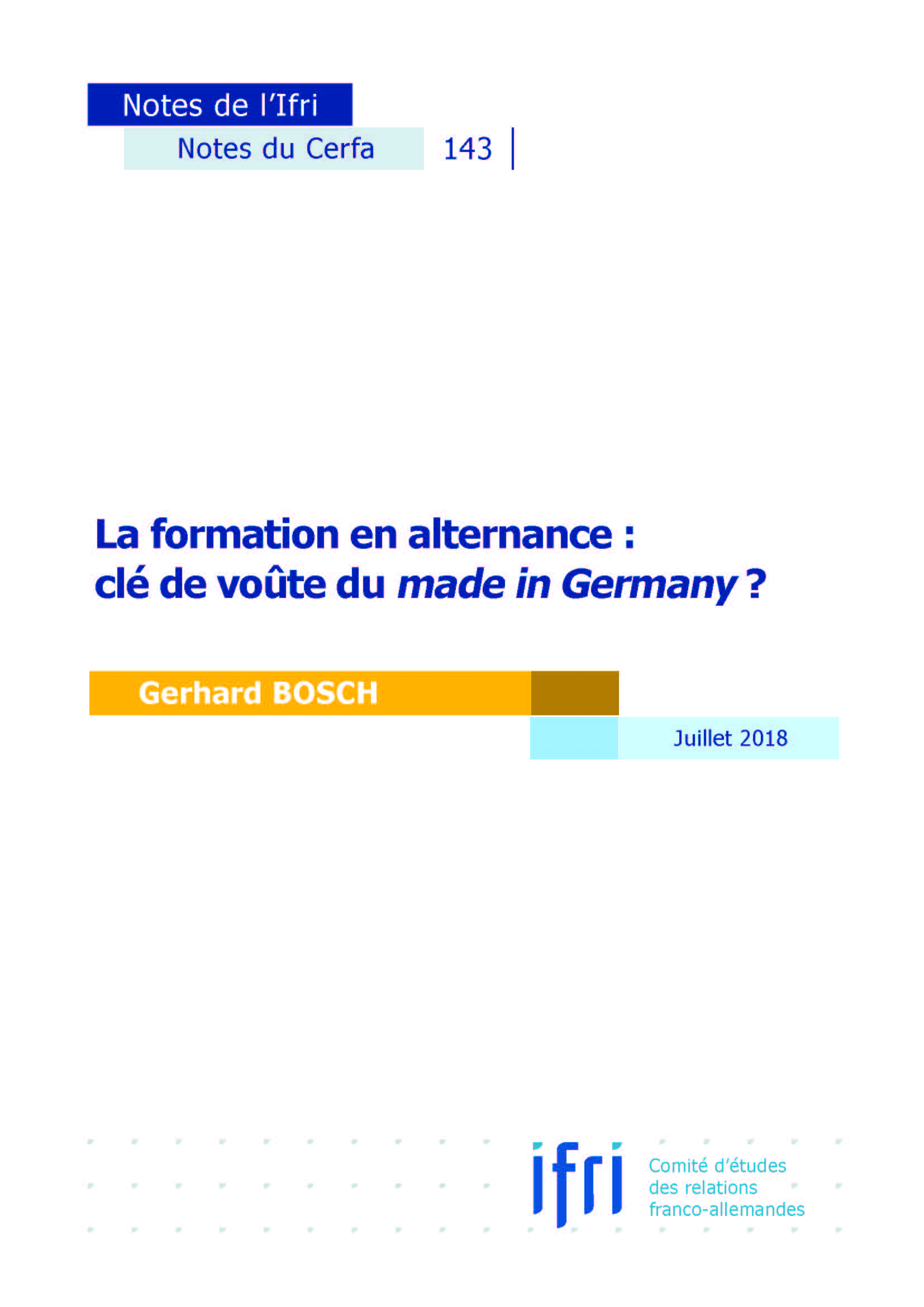Dual system of professional training: keystone of "made in Germany"?

The German dual system of professional training is seen as an international reference model. It aims at training qualified employees for an innovative economy rather than being the last resort for less able pupils. Parents and adolescents regard apprenticeships as an entry ticket to a good job with career opportunities; companies value the advantages of practice-oriented training in situ conceived in cooperation with its own professionals as this spares them the costs of integrating school graduates.

The modernisation of professional training in combination with more flexible forms of work organisation partly explain the recovery of the German economy in the mid-90s. Social partners and politicians feel responsible for the creation of adequate numbers of apprenticeship positions – even when year groups are particularly large or in times of crisis. Contrary to the situation in many other countries, young people in Germany do therefore not become outsiders that carry the burden of crises.
However, the problems of the dual system cannot be ignored. The undermining of the German collective wage system that is unable to guarantee appropriate wages has led school graduates to prefer university studies over professional training schemes. Particularly in the poor wage sectors apprenticeships are becoming less and less attractive.
This article is available in French and German only:
- Das duale System der Berufsausbildung in Deutschland
- La formation en alternance : clé de voûte du made in Germany ?
Related centers and programs
Discover our other research centers and programsFind out more
Discover all our analysesBundeswehr: From Zeitenwende (historic turning point) to Epochenbruch (epochal shift)
The Zeitenwende (historic turning point) announced by Olaf Scholz on February 27, 2022, is shifting into high gear. Financially supported by the March 2025 reform of Germany’s “debt break” and backed by a broad political and societal consensus to strengthen and modernize the Bundeswehr, Germany's military capabilities are set to rapidly increase over the coming years. Expected to assume a central role in the defense of the European continent in the context of changing transatlantic relations, Berlin’s military-political position on the continent is being radically transformed.
Merz’ European Policy-making: The End of the ‘German Vote’?
Friedrich Merz’s European ambition is to turn Germany, long seen as hesitant into a leading actor within the European Union (EU). To that end, he has pledged to end the “German vote,” a phenomenon that epitomizes the paradox of a country both indispensable and frequently absent from European decision-making.

Securing critical raw material (CRM) value chains – a prerequisite for Europe’s technological resilience
At the heart of economic security, technological resilience is a backbone of the European Union’s (EU) competitiveness. The EU’s energy and digital transitions depend on critical raw materials (CRM).

Reconciling competitiveness and demographic change: a Franco-German imperative
France and Germany are facing parallel demographic shifts that could reshape the future of their economies and their social models. These shifts reflect broader European patterns but are magnified by the central role both nations play in EU governance and competitiveness.









